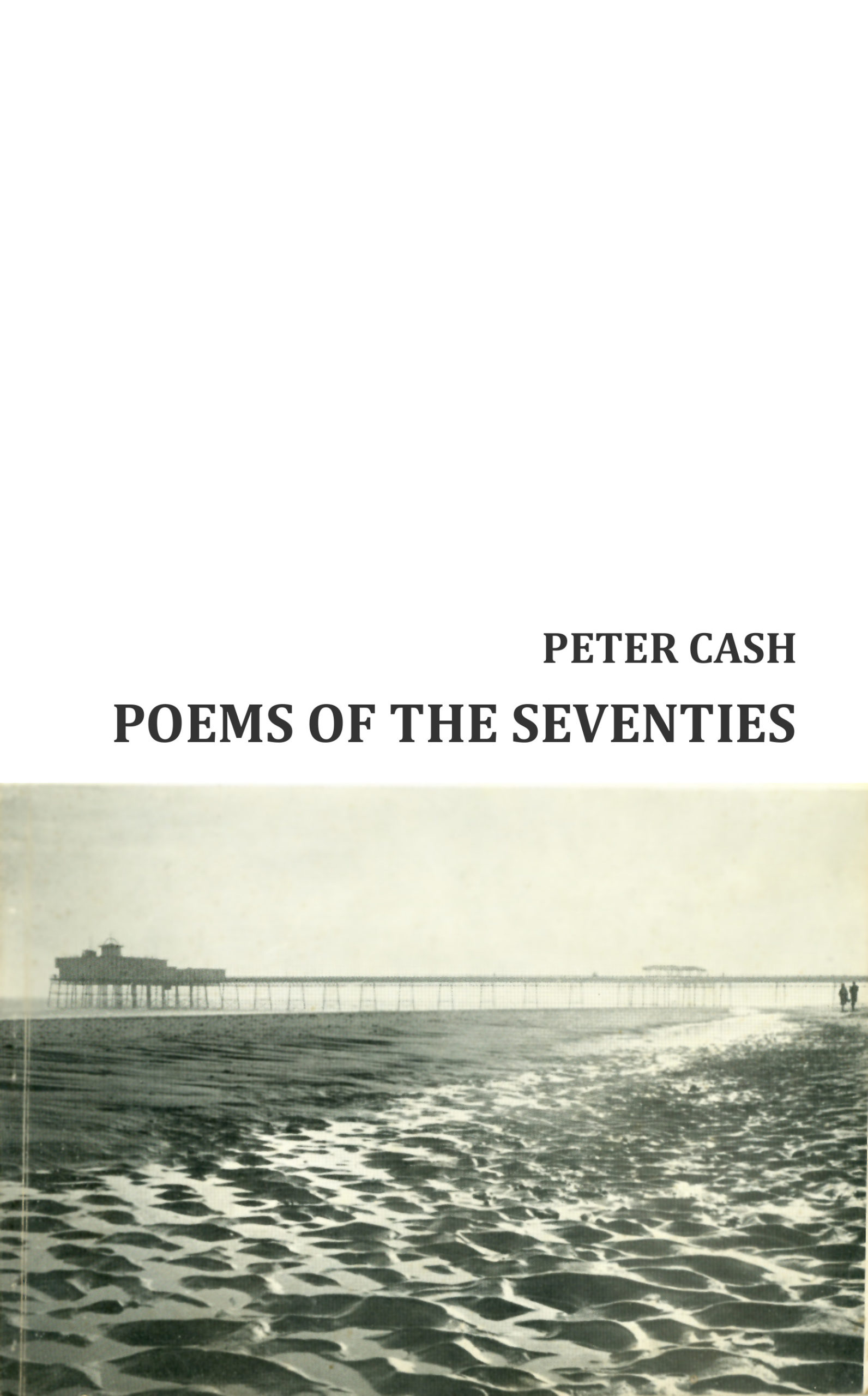£9.50
“None of us can say who will succeed, or even who has or has not
W. B. Yeats (1921)
talent. The only thing certain about us is that we are too many. ”
During the 1970s, there were – according to one survey,
conducted in 1978 – no fewer than 102 poetry magazines being
published on a regular basis, each an immediate outlet for new
writing. In that decade, Peter Cash was one of the ‘many’ young
poets who submitted his poems to these various magazines.
In the 1970s, he produced two very different collections:
Something To Write Home About and Magician in the Rain.
In 1975, he received an Eric Gregory Award in recognition not
only of the poems published in those booklets, but also of the
miscellaneous poems published in small magazines (often after a
prize‐win in a national competition) and now collected in this
hardback volume.
“Each of these poems,” he says, “is nothing more than an attempt
to make sense of a personal experience. To this end, I’ve tried to
follow Robert Conquest’s advice: that a poem should be ‘formal,
rational and comprehensible’ (New Lines, 1946).
ACKNOWLEDGEMENTS
Cinema Man won First Prize in the Skegness Arts Festival
Poetry Competition 1966 adjudicated by George Macbeth,
Norman McCaig and David Holbrook.
| One-Night Stand | LINCOLNSHIRE WRITERS 12 (Autumn 1971) |
| Skegness | LINCOLNSHIRE LIFE (August 1978) |
| October Girls | WORKSHOP NEW POETRY 11 (January 1970) LINCOLNSHIRE WRITERS 12 (Autumn 1971) |
Lake Piece won First Prize in The Lake Aske Memorial Poetry
Competition (organised by The Nottingham Poetry Society);
it was published in POETRY NOTTINGHAM in June 1970 and
re-published in LINCOLNSHIRE WRITERS 11 (Spring 1971).
| Snow Morning | LINCOLNSHIRE WRITERS 9 (Spring 1970) PROOF (September 1983) |
Cold Day for Amy won First Prize in the Nottingham Arts Festival
Poetry Competition 1972 (adjudicated by G. S. Fraser)
and was published in OUTPOSTS 98 (Autumn 1973).
Likely Lads on Friar Lane won Second Prize in The Lace Open
Poetry Competition 1994 (adjudicated by Alan Brownjohn)
and was published in its anthology of 14 prize-winning poems.
It was re-published in TEARS IN THE FENCE 20 (Spring 1998).
| Poem at the Delta | WORKSHOP NEW POETRY 18 (September 1973) |
| Nottingham Station | STAPLE 9 (Spring 1987) |
| Epithalamium | PROOF (May 1985) |
| Cold October Night | PROOF (Spring 1976) |
| Romeo and Julie Love Scene | PROOF (May 1982). |
To Malcolm and Vicki, at Pilgrim Hospital Boston, on 8th Nov 1971, a daughter Amy Elizabeth, sister to Ian COLD DAY FOR AMY Your mother wrote and told me you were here. It set me aglow in the dark morning house, something living in a dead time of year. Branches claw the roof, threaten to tear through, and the iron land turns white beneath the wind. The eighth, I recall, was a cold day too. The world, I note, is not friendly to you. Christened by rain, in your mother’s warm arms, do you feel the problem of being this new in the wind which falls and the rain that blows? Our doors are shut, every side-window sealed, and how it gets in hardly anyone knows. Snow flecks the air, pebble-dashes the wall. Cut off, I sit here watching and wonder what made you bother to join us at all. You were not consulted nor told like me. Your mother and father waited for you such a long time, talking – Ian was three – of everyone, the alone and the dead, about whom we hope you will never learn. It is cold outside, though the sun rises red. But since you are here now, in time and name, I permit myself one sentimental smile and will go out tonight and drink champagne. I wish you, young lady, pride of your home, the most I can: that you grown up beautiful and bright and never have to write a poem.
for Caroline POEM AT THE DELTA The stars are out. We drive towards them, our wheels weird-sounding over hard sand that all at once the head-lit waves hem. The car-engine competes with the sea in its remorseless movement inland. Your eyes have never stopped watching me. We skid to a halt here. For a start, I refuse to grasp your willing hand. We would have heaven on the delta except that the stars are years apart. I wind a window down. The sorrow that submerges your ebony eyes is sure to haunt me all tomorrow. This is where silent distances swell. Our dead loves, we both must realise, were such beautiful failures as well. Wind, wet with spray, veers across the night. The stark beach rattles against the skies, driftwood driven up helter-skelter. The sea gives a glimmer of starlight. Later, bodies hot with each other, we hear a faint ebbing of the tide. You talk to me about your brother. You hold me, hum a Neil Diamond tune, that ghost-white dress of yours open wide. We ache for the comfort of the moon. It is not salt air makes my eyes smart. There is so much blowing up outside from which I would offer you shelter except that the stars are years apart.

